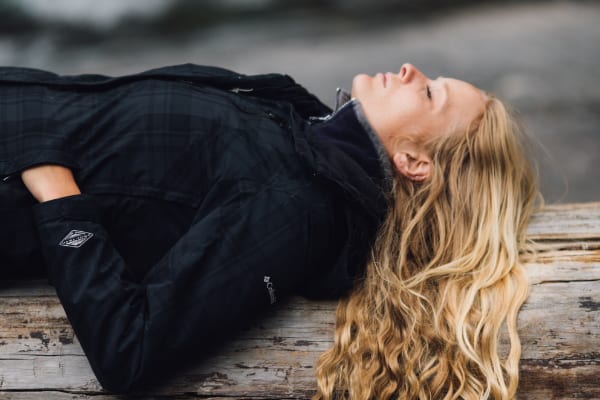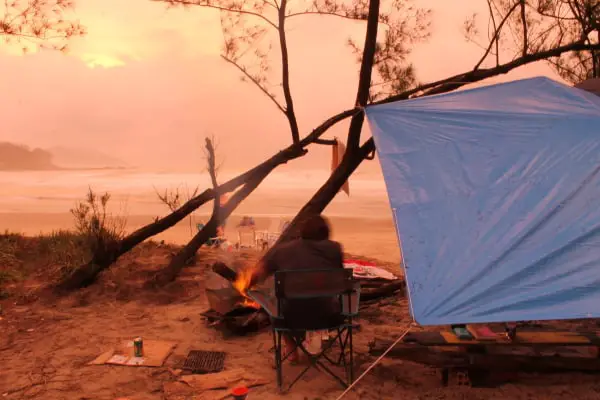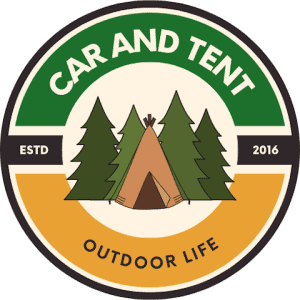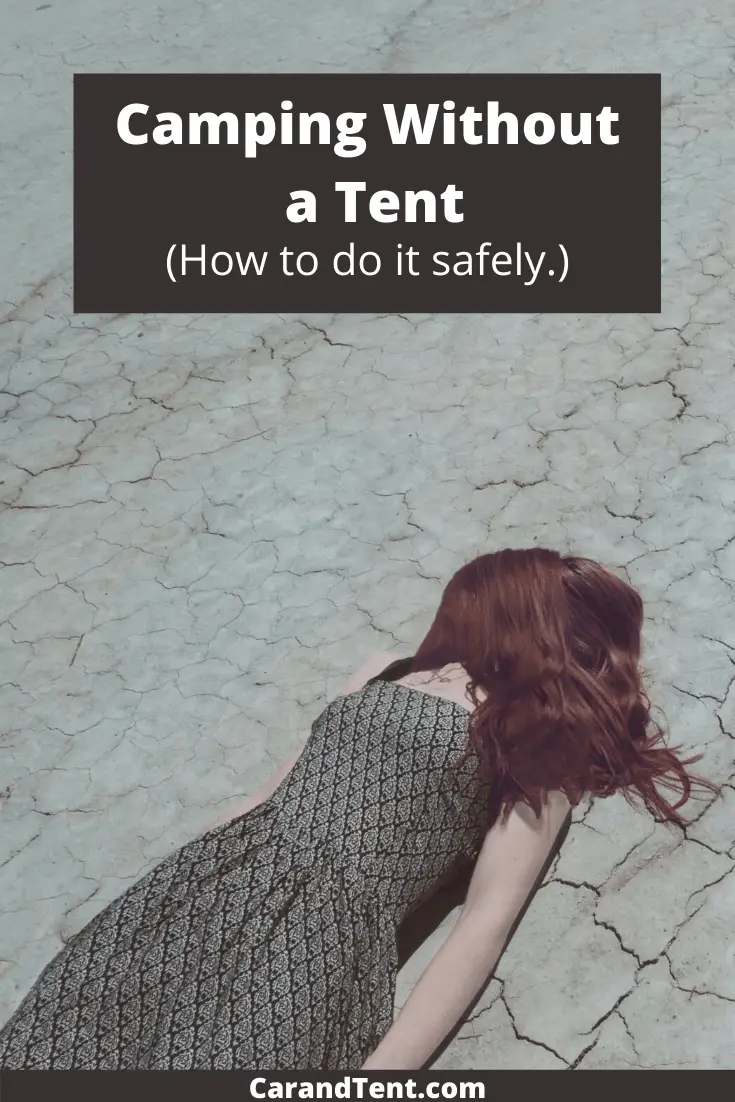
Tired of setting your tent up each night only to have to take it down, carry it all day, and then set it back up all over again? Everyone feels this way sometimes and it’s what made me finally decide to try camping without a tent.
Sleeping outside without a tent is nothing new. People have been doing it for thousands of years and if you’ve ever been in the military, you’ve probably already done it a few times already. In fact, some people refer to camping without a tent as cowboy camping and they do it exclusively.
Personally, I don’t think camping without a tent is for everybody and it’s not something I’d want to do all the time. This being said, it is nice not to have to carry a tent with me all of the time. It’s also nice to be able to sleep directly under the stars and in this post, I’ll tell you where, when, and how to do it.
Table of Contents
Where to Go Camping Without a Tent
Some people never bring a tent with them. They’ll sleep under the stars and if it rains, they’ll sleep under a tarp. This is a little too adventurous for my tastes.
I never go camping without a tent in public areas like state park campgrounds or private campgrounds where my neighbor is just a stone’s throw away. Other people might disagree, but I think it’s important that you retain some sort of privacy while you’re camping at these types of places.
The best places to camp without a tent are the desert, the mountain, the woods, and anywhere else devoid of large groups of people. Preferably, they’ll be places without a lot of bugs or insects that might want to eat you while you sleep.
When to Go Camping Without a Tent
The best time to leave the tent at home is late spring or early fall. This is the time when you’re least likely to encounter bugs, insects, and snakes.
While a tent might not keep bears or other large predators out, they will keep snakes out so I always prefer to use a tent when snakes are likely to try to curl up next to me. If you want to get around the snakes, bugs, and insects, without bringing a tent with you, you could also decide to pack some mosquito netting. The netting will keep everything off of you without confining you to your tent.

You’ll also want to choose a time when it isn’t likely to rain very hard. If you absolutely have to sleep outside without a tent in the rain, I’d suggest you bring a tarp and a sleeping bag with a waterproof outer. Something like the US military sleeping bag would work perfectly in this case as the tarp will keep the rain from falling on you and the sleeping bag will keep the water running underneath of you from soaking through.
How to Go Camping Without a Tent
Going tentless isn’t complicated but there are a few steps you can do to make it easier.
Here are some tips you can use the next time you decide to go camping without a tent.
Don’t Sleep Next to a Roadway
While you shouldn’t camp too close to a road anyway, it’s even more important that you don’t close next to a roadway when you’re sleeping without a tent. Without a tent sticking up it’s going to be harder to see you next to the road and you’re more likely to get run over.
Besides, as I said earlier, it’s always better to save camping without a tent for the wilderness areas. This way, you won’t have to worry about privacy issues while you’re sleeping.
Watch Out For Ant Hills
A swarm of fire ants can be deadly. In fact, you’re more likely to die from being attacked by a large group of fire ants than you are to die from being attacked by a bear.
To guard against this issue, make sure to check the ground for anthills before you lie down for the night. According to Texas AG&M, you can spot a fire anthill by looking for a mound of fluffy worked soil. If you think there is even a possibility that the mound you’re seeing could be a fire anthill, play it safe and move to another location.
Bring Some Shelter From The Weather
Just because you don’t have a tent with you doesn’t mean you have to get rained on. A well-placed tarp might be all you need to stay dry for the night.
If you’re in the woods, set the tarp up between three or four trees. If you’re somewhere else, you may have to improvise. Take your trekking pole or a relatively straight stick and some rope to rig your tarp up like the gentleman in the video below.
Pack A Thicker Sleeping Bag or Extra Layers
It might not seem obvious by how thin the fabric is on many tents, but a tent actually does help to trap a lot of body heat. When you take the tent away, you’ll lose all of this body heat. You’ll also be exposed to the wind which will also blow your body heat away from you at a quicker pace.
To get around this, consider wearing more layers to sleep or go ahead and bring a thicker sleeping bag. Whether you’re in the woods, the mountains, or the desert, the temperature will drop overnight and you’ll want to make sure you’re warm regardless of whether or not you have a tent.
Use Bug Spray and Do a Thorough Tick Check
A tent does more than provide privacy and a warm place to sleep. Tents do a great job at keeping bugs and insects off of you while you sleep.
For this reason, you’ll need to spray yourself as well as your clothing down with bug spray before heading off to sleep. You’ll also want to check yourself for ticks when you wake up as well. Do this as soon as you wake up and you’ll dramatically reduce your chances of catching Lyme disease.
Bring Your Tent Anyway (Just in Case)
Sleeping without a tent can be a great experience but it isn’t always a good idea to head out without one. Bring a tent along and you can put it up in the event that you get swarmed by bugs or soaked in a torrential downpour.
Even if you’re camping in an area that won’t have bugs or rain, you might still want to bring a tent out with you the first time you try camping without a tent. This way, if you find you’re having too much trouble falling asleep without the tent, you can always go ahead and set it up.
Related Questions
Is it safe to go camping without a tent?
Camping without a tent is safe but you’ll need to take some additional precautions against bugs, insects, and even the weather.
What are some tent alternatives?
Instead of a tent, you could opt to sleep in a hammock, underneath of a tarp, inside of a mosquito net, or in a bushcraft shelter.


